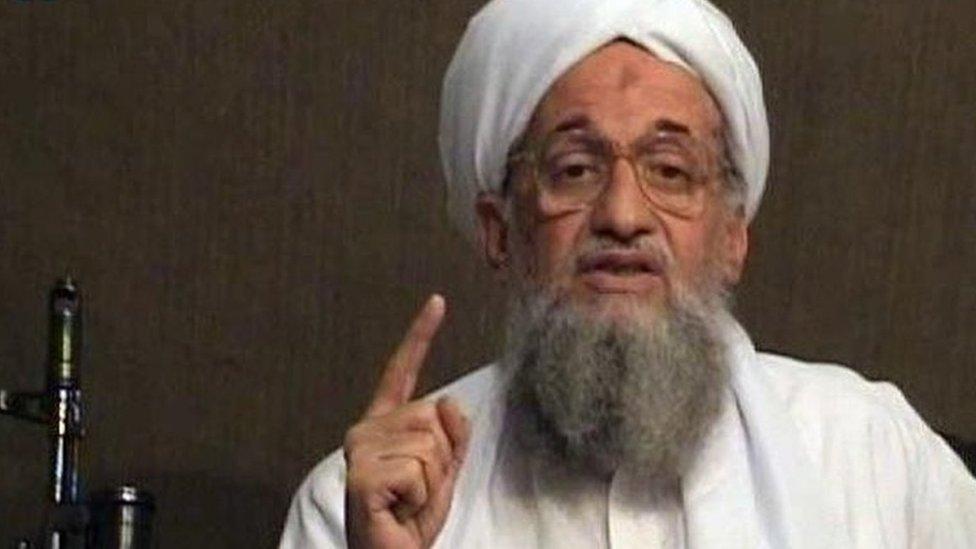Zawahiri's victims: What it feels like to hear he's gone
- Published
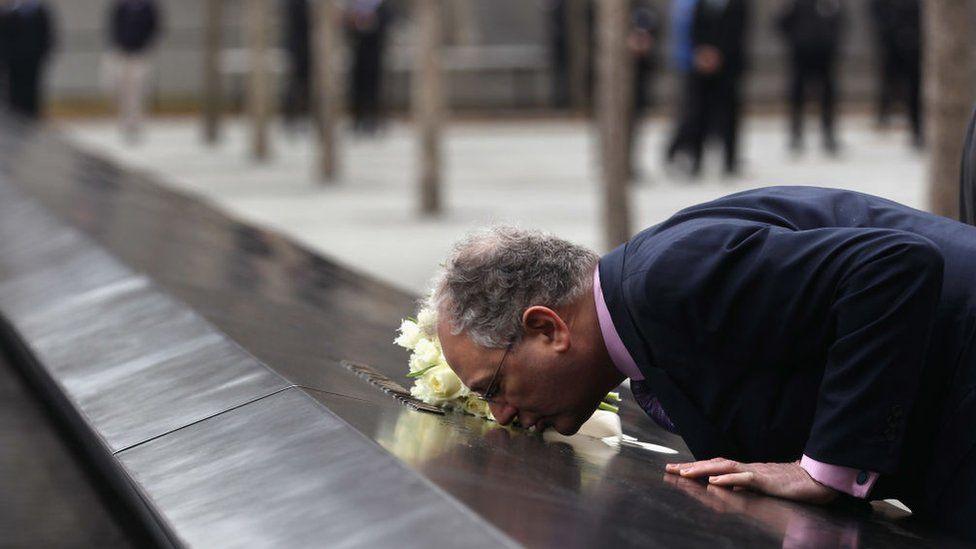
Charles Wolf kisses the spot where his wife's name is etched on the 9/11 memorial in New York
Americans danced in the streets over the death of al-Qaeda leader Osama bin Laden. The killing of his successor has been met with a more muted response - but those robbed of their loved ones by Ayman al-Zawahiri's actions say his death matters too.
On 11 September 2001, roughly five seconds before American Airlines Flight 11 hit the north tower of New York's World Trade Center, the plane flew directly over Charles G Wolf's apartment building.
Trained as a pilot, Mr Wolf, 68, knew instantly that a twin-engine plane was flying dangerously low at full throttle through Manhattan - and his worst fears were soon validated.
The hijacked flight crashed directly into the building where Katherine, his Welsh-born wife of 13 years, worked. She was among 2,977 people who died that day.
Mr Wolf - who rushed out onto the street to get a closer look as he frantically called his spouse - fell ill from the toxic fumes of the wreckage.
"I got hit twice, you might say," he said, referencing the death of his wife and his nearly decade-long health issues following the attack.
More than two decades on, Mr Wolf is grateful that many have not forgotten what happened.
On Monday, US President Joe Biden announced that two Hellfire missiles had taken out the man described as the "real brains" of al-Qaeda.
Intelligence officials had tracked Zawahiri to a safe house in an upscale neighbourhood of Kabul, Afghanistan, earlier this year. The so-called emir of al-Qaeda was struck as he stood on a balcony on Sunday morning. He is said to have died instantly.
"Justice has been delivered," said Mr Biden, adding that Zawahiri had been "deeply involved in the planning of 9/11".
When he heard the news, Mr Wolf said he felt a tingle of excitement travel from the base of his spine up to his neck.
"This is wonderful news," he told the BBC. "I applaud President Biden for doing it. It's very satisfying to know that we're still looking at this stuff."
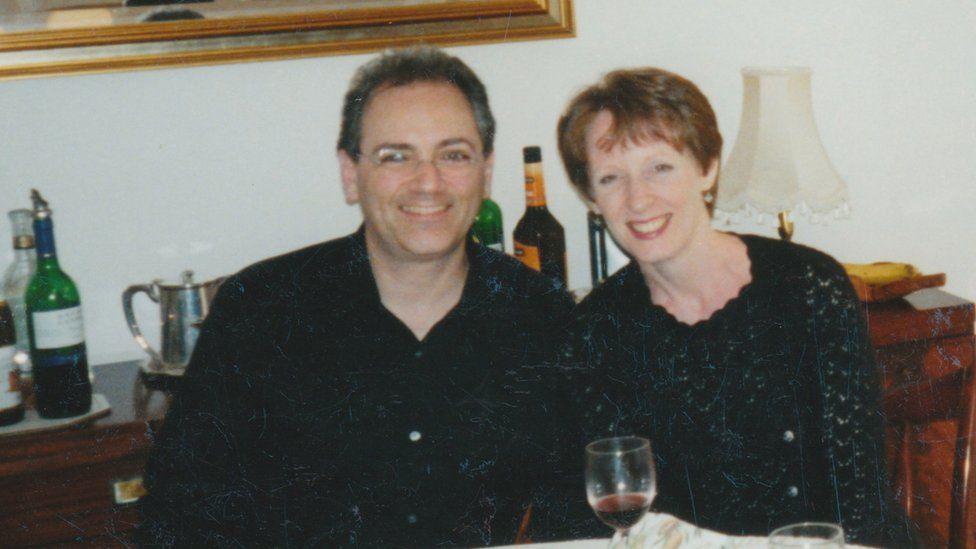
Charles and Katherine Wolf were married for 13 years
He concedes however that it took him a moment to piece together who Zawahiri was.
"I don't even think I understood clearly that he was 'the architect', because he wasn't the focus of the media. No one was talking about this guy," he said.
When bin Laden was killed in May 2011, New York erupted in joy. Mr Wolf claims he stayed up late into the night and did more than 50 interviews on national and local airwaves.
"[Emotions] were still raw back then," he said. "We'd been talking about bin Laden since a week after it happened."
But if the deaths of bin Laden and Zawahiri have resonated in different ways, their atrocities both trigger a visceral response in their victims.
Mr Biden, in his televised address on Monday, noted Zawahiri had played a key role in the suicide bombing of the USS Cole warship in 2000, and the 1998 truck bombings at US embassies in Nairobi, Kenya and Dar es Salaam, Tanzania - attacks that claimed a total of 241 lives.
Douglas Sidialo was stuck in traffic on his way to work when the attack at the embassy in Nairobi took place.
The explosion was the last thing he ever saw. He has been permanently blind for the past 24 years.
"When I realised that I had lost sight, I was devastated, angry, bitter," he told the BBC's Newsday programme.
"At the time, if I would have met [Zawahiri], I would have skinned him alive little by little so that he could feel the pain I was going through."
American victims of the attack have been compensated in the years since the attack, but Mr Sidialo - a spokesman on behalf of the Kenyan victims - says he has not.
"I know the American citizens, contractors and employees of the embassy were compensated... but we as Kenyans have never been considered for compensation. And this has been a pain."
But he said that knowing Zawahiri is dead "brings a sense of closure in many victims' hearts, minds and souls".
Terming the killing "an act of God", Mr Sidialo added: "When you kill by the sword, you're also killed by the sword."
Paula Berry, who lost her husband David on 9/11, is grateful the al-Qaeda plotter is finally gone - but, as when bin Laden died, she is not celebrating or finding closure in the event.
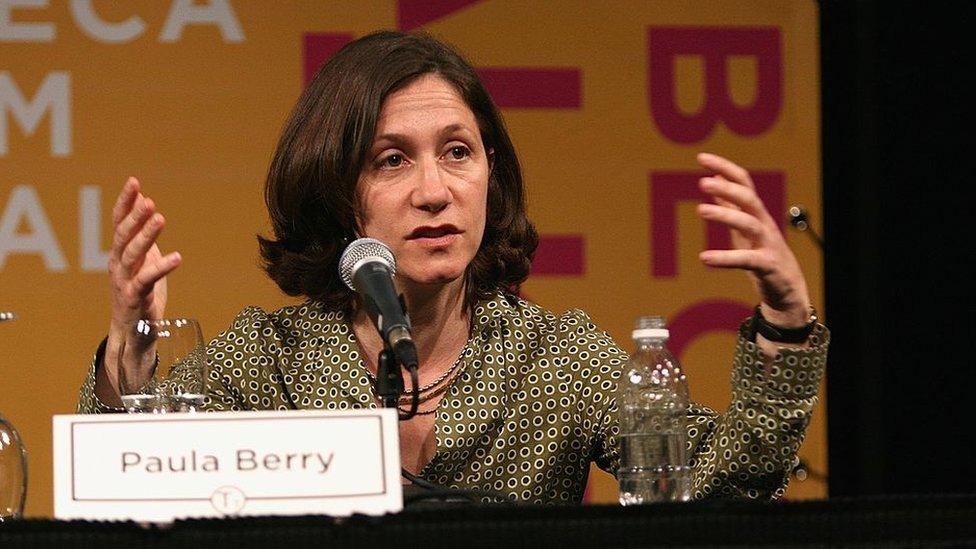
"There's no such thing as closure when you lose somebody," she said. "It's not like a chapter ends or I've been waiting for this."
"It's a little galling that he got to live another 20 years."
Ms Berry has poured herself into rebuilding New York City after the attack. She has advised on the reconstruction of downtown Manhattan and was one of 13 jurors who selected the design for the permanent 9/11 memorial.
Although she is no longer "a lightning rod" on the topic, she says people remain "so wired" to the events of 9/11 and continue to reach out to her.
"Most of us have gone on with our lives, but this will always be our backdrop," she said.
It's a sentiment Mr Wolf shares.
He has been at the forefront of seeking compensation for 9/11 families, efforts that were chronicled in the 2020 Netflix biopic, Worth.
"It's been therapeutic for me," he said. "I'm very proud of what I did."
The emotions of 9/11 and the memories of his beloved wife are always with him - regardless of whether he is making breakfast or hearing about a drone strike on an al-Qaeda figurehead.
"Every time an anniversary comes up, it brings up emotions," he said. This September will be 21 years.
"It's gotten to the point where, as the sunlight changes as we approach autumn, my third eye picks that up."
- Published2 August 2022
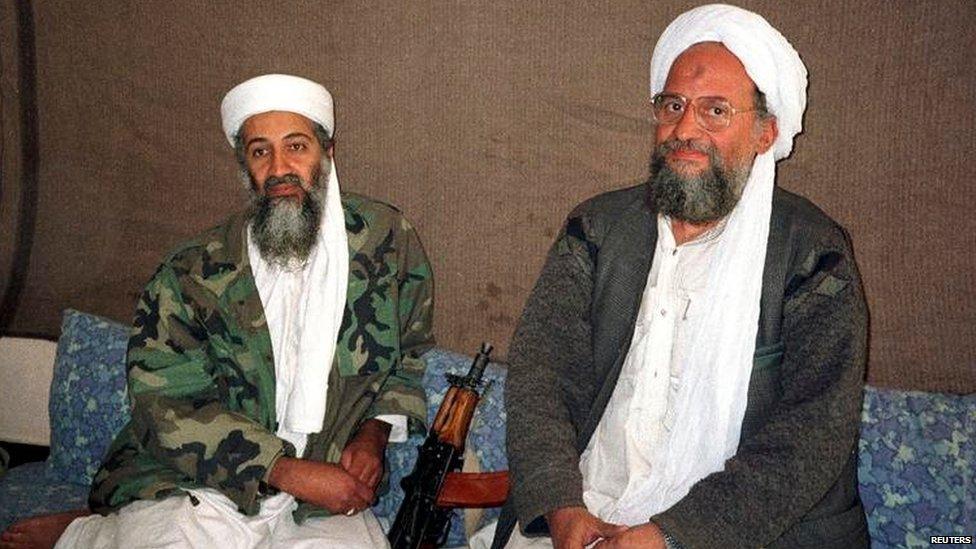
- Published3 August 2022
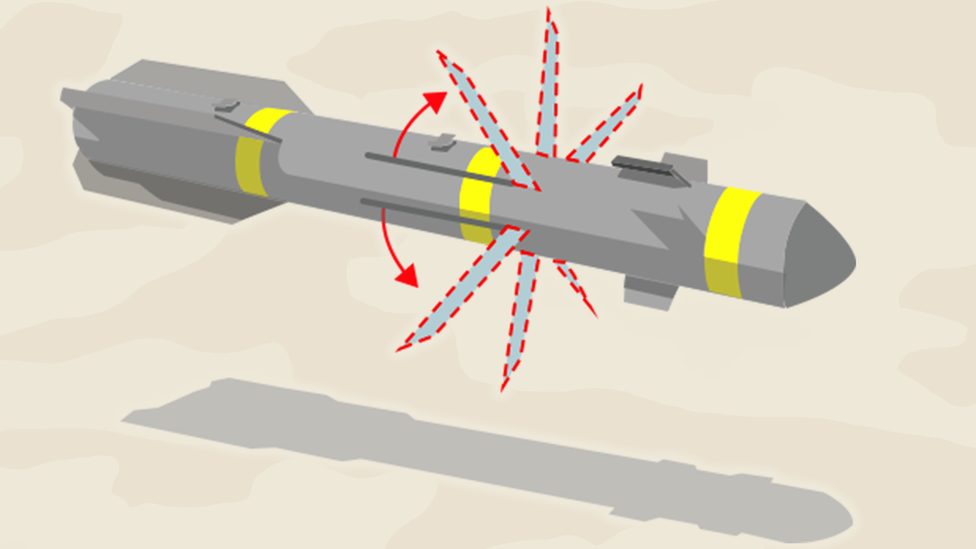
- Published2 August 2022
- Published3 August 2022
